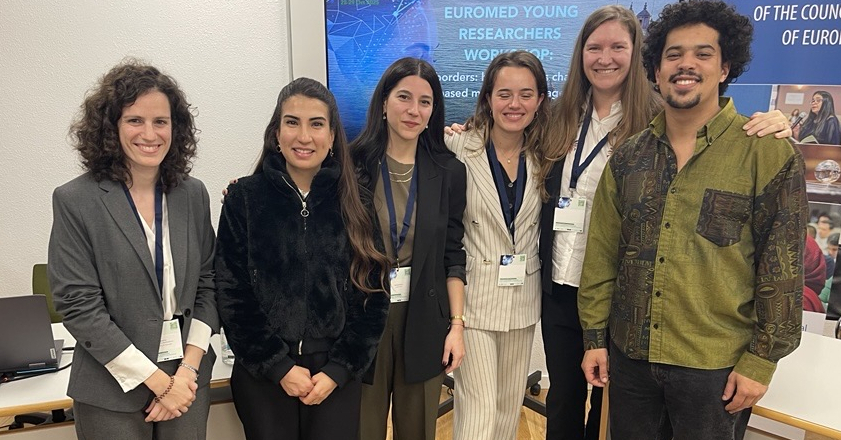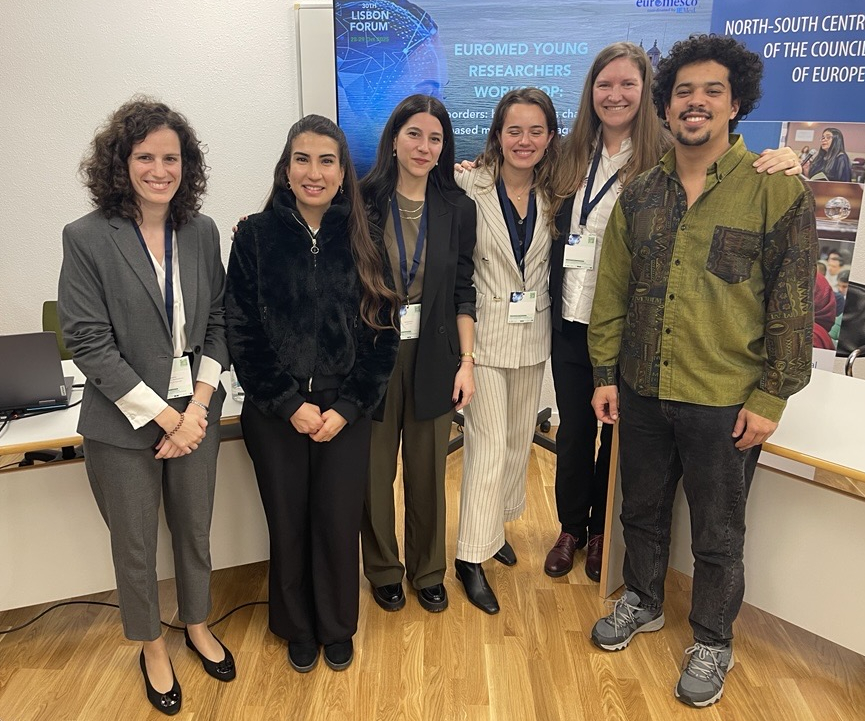
Virtual borders: Human rights challenges in AI-based migration management
As part of the Lisbon Forum 2025’s programme, the IEMed contributes with the workshop “Virtual Borders: Human Rights Challenges in AI-Based Migration Management”, building on the work of the EuroMed Young Researchers Forum 2025.

The session explored how artificial intelligence is transforming migration management across the Euro-Mediterranean region offering efficiency while raising critical ethical, legal, and humanitarian challenges.
Through three case studies, young EuroMeSCo researchers examined:
1️⃣ AI in asylum systems (Konstantina Liontou), highlighting risks of bias and lack of transparency;
2️⃣ Repurposing border technologies to trace missing migrants (Nabil Ferdaoussi), calling for humanitarian data frameworks and regional cooperation;
3️⃣ Technology-facilitated gender-based violence against migrant women (Martina Canesi), urging stronger protection and cross-border accountability.

The discussion underscored the dual nature of AI: it can help identify missing migrants, restore names, and build accountability, yet it can also expose or harm those it seeks to protect. Addressing this requires political will, as AI in migration processes often feeds on existing biases under the guise of efficiency.

Across all topics, participants highlighted the human impact behind digital systems and the urgent need for regional cooperation, since AI not only crosses borders but also creates new virtual ones that can be even harsher than physical barriers.


